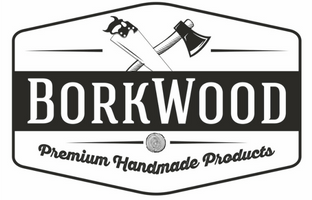Important SEO Tips for Merchant Service Providers
Search Engine Optimization (SEO) is crucial for Merchant Service Providers (MSPs) to improve their online visibility, attract more clients, and stay ahead in a competitive market. SEO helps MSPs rank higher in search engine results, making it easier for potential customers to find them when looking for services such as credit card processing, online invoicing, and merchant accounts. In this article, we will explore essential SEO tips tailored for merchant service providers, including strategies for keyword optimization, generating free backlinks, and optimizing content for better user engagement.
1. Understanding SEO for Merchant Service Providers
Before diving into specific tips, it’s essential to understand what SEO entails and why it matters for MSPs. SEO involves optimizing a website so that it ranks higher on search engines like Google. When people search for terms like “merchant services,” “online invoicing,” or “credit card processing,” SEO ensures that your website appears among the top results.
MSPs operate in a highly competitive space, with numerous providers offering similar services. Standing out in search engine results is crucial for driving organic traffic, converting leads, and increasing overall brand awareness. SEO can help achieve this by improving your website’s technical performance, content relevance, and overall authority.
2. Perform Thorough Keyword Research
Keywords are the foundation of any SEO strategy. For MSPs, the key is to identify search terms that potential clients are using when looking for services such as payment gateways, merchant accounts, or invoicing solutions. Tools like Google Keyword Planner, Ahrefs, and SEMrush are helpful in identifying relevant keywords with high search volumes and manageable competition.
- Long-Tail Keywords: Long-tail keywords, which are more specific and longer phrases, tend to have lower competition and higher conversion rates. For example, instead of targeting “merchant services,” which is broad and competitive, you could target more specific phrases like “merchant service providers for small businesses” or “affordable credit card processing for eCommerce.” These long-tail keywords attract more qualified traffic.
- Local Keywords: Many businesses are seeking MSPs within their geographic region. Including local SEO keywords such as “merchant services in New York” or “online invoicing in Los Angeles” can help you rank for location-based searches.
3. Optimize Your Website Structure and User Experience
Search engines prioritize websites that are easy to navigate and provide a positive user experience. MSPs should ensure that their website is structured in a way that search engines can easily crawl, and visitors can quickly find the information they need.
- Mobile Optimization: With mobile traffic surpassing desktop, Google has moved to mobile-first indexing. This means that the mobile version of your website is primarily used for indexing and ranking. Ensure your website is responsive, loads quickly, and provides a seamless experience on smartphones and tablets.
- Site Speed: Google factors website loading speed into its ranking algorithm. A fast-loading website improves user experience and reduces bounce rates, which signals to search engines that your content is relevant. Use tools like Google PageSpeed Insights or GTMetrix to identify and resolve any issues that slow down your site.
- Internal Linking: A well-organized internal linking structure helps search engines understand the importance of different pages on your website. By linking to high-value pages, such as service offerings or blog content, you can help direct traffic and improve your rankings for key terms.
4. Create High-Quality, Optimized Content
Content is king when it comes to SEO. MSPs should focus on producing valuable, informative, and engaging content that addresses the needs of their target audience. Regularly updating your website with fresh content not only helps with SEO but also positions your company as an authority in the merchant services space.
- Blog Posts and Articles: Create blog posts that answer common questions and address pain points for businesses seeking merchant services. Topics like “The Benefits of Online Invoicing for Small Businesses” or “How to Lower Credit Card Processing Fees” are informative and can attract qualified leads. Optimizing these posts with relevant keywords will help you rank higher in search results.
- Service Pages: Each service offered by an MSP should have its own dedicated page. These service pages should be optimized for specific keywords related to the service, such as “free invoicing software” or “credit card terminals for restaurants.” Ensure these pages provide comprehensive information about the services, and include a clear call-to-action to encourage visitors to get in touch or sign up for a service.
- Use of Visuals: Integrating images, infographics, and videos can increase user engagement and dwell time on your website. Visual content can also be optimized for SEO by including keyword-rich alt text and descriptive file names.
5. Build Free Backlinks to Increase Authority
One of the most effective ways to improve your SEO is by acquiring high-quality free backlinks from reputable websites. Backlinks serve as endorsements from other websites, signaling to search engines that your website is trustworthy and authoritative. For MSPs, building free backlinks can significantly boost search engine rankings and drive referral traffic.
- Guest Posting: Reach out to industry blogs, financial websites, or business publications and offer to write guest posts on relevant topics such as credit card processing trends, the importance of online invoicing system, or fraud prevention for merchants. In exchange for contributing valuable content, you can usually include a backlink to your website.
- Partnerships and Collaborations: Collaborate with complementary businesses like accounting firms, eCommerce platforms, or software developers to create joint content or share resources. They may link back to your site in blog posts or partner pages, which helps build your backlink profile.
- Directories and Listings: Submitting your MSP to industry-specific directories and local business listings can generate free backlinks and improve your online visibility. Be sure to list your business in directories like Yelp, Google My Business, and other merchant service or financial service platforms.
6. Leverage Local SEO for MSPs
Local SEO is essential for MSPs that serve specific regions or want to attract local businesses. Optimizing for local search helps you appear in geographically relevant search results and can be especially beneficial for attracting clients who need in-person consultation or support.
- Google My Business: Claim and optimize your Google My Business (GMB) listing. Ensure your business name, address, phone number, and website are accurate and consistent across all online platforms. Encourage satisfied customers to leave reviews, as positive feedback can help improve your rankings in local search results.
- Local Citations: Make sure your business is mentioned in local directories, blogs, or news articles. Citations from reputable local sources, even without a backlink, can help improve your authority in a specific region.
7. Optimize for Voice Search
With the rise of smart devices, voice search is becoming increasingly popular. MSPs should optimize for voice search by targeting conversational, question-based keywords. People using voice search often ask more specific questions, so optimizing your content to provide direct answers can help you capture this traffic.
- FAQs: Adding a Frequently Asked Questions (FAQ) section to your website can help capture voice search queries. Focus on providing concise answers to questions like “What is online invoicing?” or “How do I set up a merchant account?” Voice search optimization can help you rank for these types of queries.
- Conversational Keywords: Instead of focusing only on short, transactional keywords, consider optimizing for long, natural-sounding queries. For example, rather than targeting “merchant services,” you might optimize for “What are the best merchant service providers for small businesses?”
8. Use Online Invoicing as a Lead Magnet
Offering free online invoicing tools or templates can be a valuable lead-generation strategy for MSPs. By providing a useful resource that appeals to your target audience, you can attract potential clients to your website while showcasing your expertise in payment solutions.
- Lead Magnets: Create downloadable guides, templates, or free invoicing software that businesses can access in exchange for their contact information. This not only helps you grow your email list but also gives you an opportunity to nurture these leads into clients.
- Landing Pages: Create dedicated landing pages optimized for keywords like “free online invoicing software” or “best online invoicing tools for small businesses.” These pages should be well-designed, provide clear value, and include a strong call-to-action to encourage conversions.
9. Track SEO Performance and Adjust Accordingly
SEO is not a one-time task but an ongoing effort. Regularly monitoring your SEO performance allows you to make adjustments and improvements based on data. Key metrics to track include organic traffic, keyword rankings, conversion rates, and backlink growth.
- Google Analytics and Search Console: Use Google Analytics to track organic traffic and measure how visitors engage with your site. Google Search Console can provide insights into how your website is performing in search results and identify areas for improvement.
- Competitor Analysis: Regularly analyze your competitors’ SEO strategies. Identify what keywords they are ranking for, where they are getting their backlinks, and what content is driving their traffic. Use this information to refine your own SEO approach and stay ahead.
10. Use Schema Markup for Better SERP Visibility
Schema markup is a form of structured data that helps search engines understand your website’s content better. For MSPs, implementing schema markup can enhance your search results by displaying rich snippets such as business hours, reviews, and service offerings.
- Local Business Schema: Use local business schema to help search engines display important information about your MSP in local searches. This can improve your chances of appearing in Google’s local pack, which highlights nearby businesses.
- Service Schema: If you offer services like online invoicing, include service schema to help search engines categorize and display your services in a more informative way in search results.
Conclusion
For merchant service providers, effective SEO is essential to increasing online visibility, attracting potential clients, and staying competitive. By focusing on keyword optimization, link building services acquiring free backlinks, leveraging online invoicing as a lead magnet, and continuously monitoring performance, MSPs can improve
their search engine rankings and ultimately drive more qualified leads to their website.
Staying updated with SEO best practices is crucial, especially as search algorithms evolve. A well-rounded SEO strategy that incorporates technical optimizations, high-quality content, local SEO efforts, and ongoing performance tracking will ensure that your merchant service provider business remains visible to potential clients in 2024 and beyond.
By effectively using strategies like creating free backlinks, offering online invoicing tools, optimizing for voice search, and building a robust content marketing plan, MSPs can strengthen their digital presence. As competition in the financial services sector intensifies, implementing these SEO tips can position your business as a leader, helping you attract new clients and grow your merchant service provider operations efficiently.
Remember, SEO is a long-term investment. Results may take time, but by continuously refining and optimizing your efforts, you’ll see sustainable growth in organic traffic, client conversions, and online visibility.






